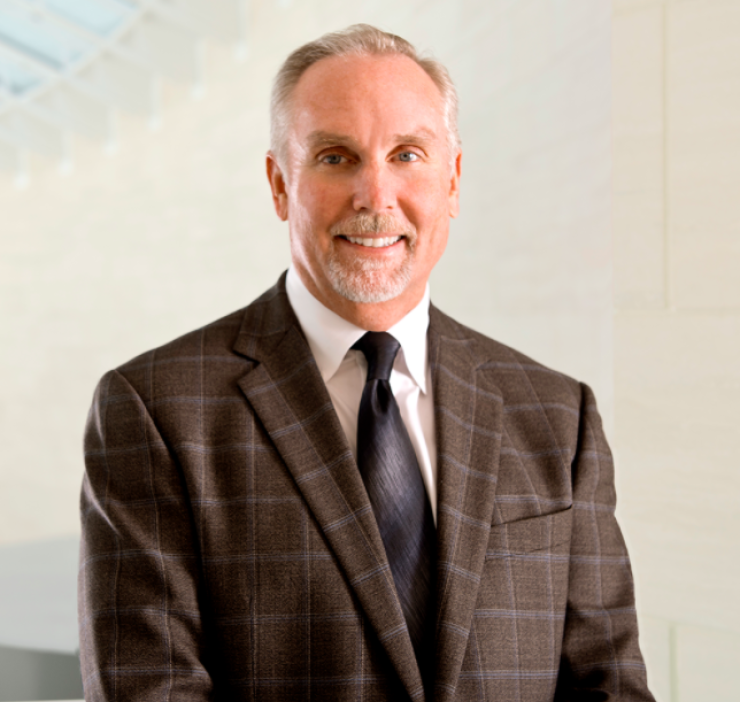Greg Friedman, the CEO of Private Ocean Wealth Management, has found it particularly challenging to be stuck at home during the coronavirus pandemic quarantine.

“I’m a people person,” says Friedman. “I think you miss a lot not being in the same room. I think you miss a lot not being face-to-face and there is no making up for that. Believe me if there was a vaccine tomorrow and I could get 50 people in the room, I would be doing a live event [for clients].”
But Friedman pushed through his professional and personal frustrations. For virtualizing their firm with remarkable speed and granular sensitivity he and coworkers at Private Ocean are the recipients of Financial Planning’s team Visionary Leader Award in its inaugural year.
Friedman mobilized a team of 16 people, including 14 advisors, to provide remarkably targeted and specific care to Private Ocean’s 1,500 clients and 50 workers. The team worked long days and through weekends to create a crisis plan that supported clients and employees, while also keeping the firm on track for future growth.
“That first week we shored up everybody’s homes,” Friedman says of the period in mid-March, when workers in all three of the firm’s offices in San Francisco, San Rafael and Seattle went remote as the coronavirus spread. “We asked them, ‘Do you have the right ergonomics? Do you have the space to work? Is anybody having a tough time’”

The firm had already shifted its data and software to the cloud five years earlier, but the team had to nimbly account for non-tech problems. For one, home was not a quiet sanctuary for all, so the team arranged for one trader to work from the office.
“We said, ‘You can go into the office, but make sure you stay away from people,’” Friedman says. In each of the firms’ three offices, a handful of people have been allowed to come in to work from the beginning of the quarantine — in masks and at a distance from one another — when remote working was not ideal.
A couple of weeks into the crisis, Friedman and his team went back to their employees and pushed for more.
Round two, he says, became “What did you not tell us? What are you tolerating? … Then it became almost a pretty big concern about peoples’ mental health.”
Harry & David fruit baskets arrived on employees’ doorsteps to encourage healthy snacking. The team noticed people were skipping vacations and working on the weekends. Friedman drew a line.
“We said ‘put those boundaries back. We really want to encourage you to take time off,’ ” he says.
At a time of uncertainty and insecurity, says the firm’s marketing director, Angela Giombetti, “employees felt a sense of inclusion and empowerment.”
The firm’s ability to move quickly also stemmed from the fact Friedman ran the fintech firm he founded, Junxure, alongside his RIA for 15 years; Junxure’s staff was always virtual, making the concept of working from remote easier to embrace on the RIA side. Friedman
Private Ocean, which already supported two charities, the Bucks Institute for Research on Aging and the Marine Mammal Center in Sausalito (Friedman sits on the board), virtualized its work on their behalf, as well. Private Ocean hosted live events with the organizations on Zoom. They expected to attract about 40 clients; more than double attended the remote gatherings. The firm continues to host ongoing events to preserve a sense of community with clients.
Throughout the ongoing quarantine clients have gotten “personal outreach and advice, complimentary care for their loved ones who were not Private Ocean clients [and] an abundance of online resources to share with their friends and family,” Giombetti says.
These are tough, but promising times, says Friedman, who recently has addressed the uprisings against police brutality with his staff.
“History shows us it is these types of times with this level of unrest and disruption when good things happen,” he says. “When people feel that everything is going great, it’s harder to get more progress.”
As uncontrollable events unfold around his firm, Friedman and his team are controlling what they can, and plan to keep creating as much connection as possible.
“My leadership style is probably authentic to a fault,” Friedman says. “I just really want people to know I care.”





